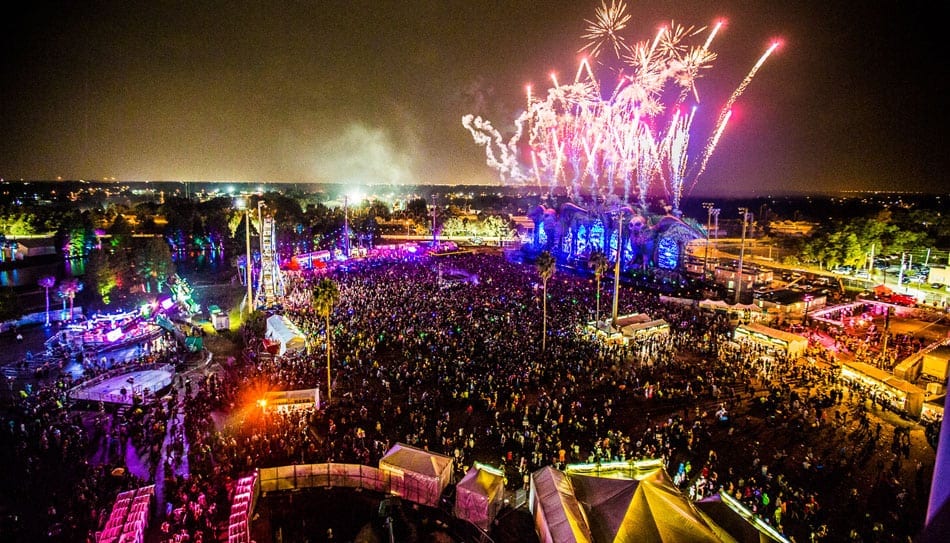Remember all that data that you’ve got in those .xlsx files, laying in a sad, discarded heap in a Dropbox folder somewhere? You were hit over the head with the word “data” at the last festival conference you went to and were seduced by its value to both yourself and the brands you want to court. But when it came to doing something with all of that data you were stuck, unsure what you had trawled and how to make any use out of it.Believe it or not, Umbel’s Dave Cedrone has encountered your problem before. As Sr. Partner of Strategic Services at the Austin-based data management firm, he has been involved in helping countless festival and event promoters get the crucial metrics they and their sponsors require to maximize ROI, growth potential and customer retention.“[Data] is definitely a hot topic in the event planning space at the moment,” Dave told Intellitix, “and company’s suddenly have access to so much more of it. But there’s certainly a need for businesses like ours to come in and help them make sense of it all.”Dave took the time to chat with us a little about making sense of your spreadsheets, focusing on what’s important to you, and the mind-bending future of event data.
Why You Need It
Okay, let’s say you threw a crunchy folk festival in 1972, and you’ve decided you want to get back in the business. Things have changed. Data—information about your audience—has become a hugely valuable commodity, allowing you and your partners get to know your audience and what they want from an event.“Data allows people to manage inventory better, it allows you to have a more targeted sales strategy, better customer outreach experience, even design the festival site better,” he explains. “Brands too are going to want to gather data on-site about the people they are advertising to in order to generate leads, and if you as an event promoter can offer that to them, that can be lucrative.”Getting the Right Data
“You need to start with the simple stuff. Name, email, city and zip code. And then either from gathering additional data, or by using a third-party service to pull from other sources, you’d want to gather age, marital status, household income, kids, education” Gathering too much can often be worse than gathering too little, but Dave endorses precision, highlighting the key metrics that you really need and then putting your focus into organizing it well?“Beyond that you just want to make sure that you have good structured data in place. If you’re looking at ticket sales, make sure you’re not just pulling the email address but you’re getting the type of ticket, how many they bought, the date, total transaction amount. This is so that later on when you’re reviewing all of this information you have important metrics to analyze.”
Gathering too much can often be worse than gathering too little, but Dave endorses precision, highlighting the key metrics that you really need and then putting your focus into organizing it well?“Beyond that you just want to make sure that you have good structured data in place. If you’re looking at ticket sales, make sure you’re not just pulling the email address but you’re getting the type of ticket, how many they bought, the date, total transaction amount. This is so that later on when you’re reviewing all of this information you have important metrics to analyze.” Contests Can Help Gather More
“Ticket contests are a really simple way for you to gather data about your audience,” he starts. “But it’s a common problem for people to work out exactly what to give away in exchange for data in a contest. If it’s worth a lot for you to be able to show, say, the age of your audience to sponsors, then you might want to give away a couple of VIP tickets.”But perhaps your audience isn’t responsive to contests. Dave says the lure of exclusive content could be more appealing. “Say some major act is playing at your festival. You can work to get him or her to do a couple of acoustic songs backstage, film that and put it out a couple of months after the fact and fans can watch it in exchange for information about them. You can even partner up on that with a brand, and you share in the data.”The Data is Getting Smarter
“I think you’re going to start seeing artists and festivals collaborating and sharing data on one another’s audiences, and that has the potential to change how artists are compensated,” he told Intellitix. “You’ll also start seeing more and more booking agents using data on something like Spotify to determine up and coming acts that their audience wants to see.”[caption id="attachment_3977" align="aligncenter" width="700"] Click here to download Intellitix’s RFID Whitepaper[/caption]Dave waxed lyrical about the cross-compatibility of data sets, with apps like Aloompa and RFID companies like Intellitix working together to geomap consumer movements on-site and meticulously breakdown spending habits. And when you’re trying to attract large brands to your event, the festivals with the most detailed consumer data will scale the fastest in years to come.
Click here to download Intellitix’s RFID Whitepaper[/caption]Dave waxed lyrical about the cross-compatibility of data sets, with apps like Aloompa and RFID companies like Intellitix working together to geomap consumer movements on-site and meticulously breakdown spending habits. And when you’re trying to attract large brands to your event, the festivals with the most detailed consumer data will scale the fastest in years to come.
